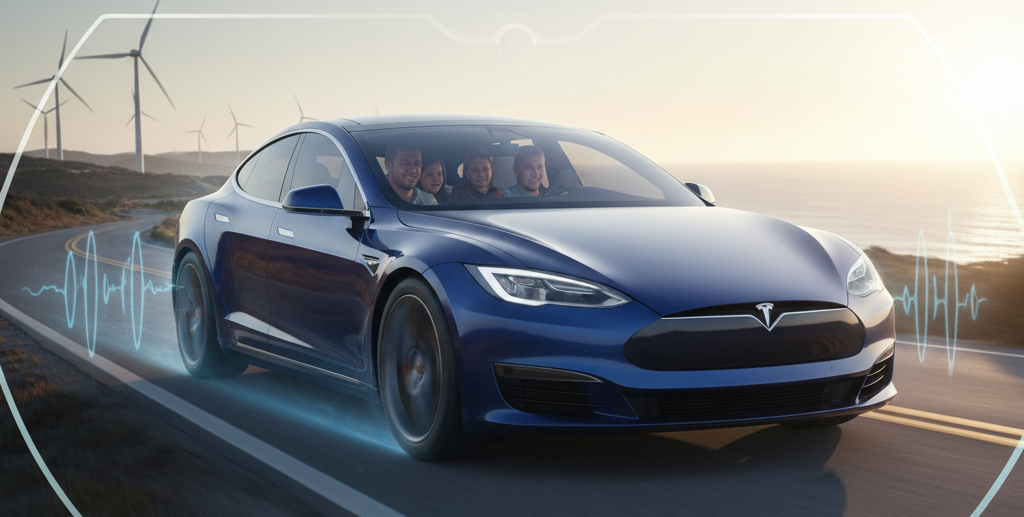The automotive industry is undergoing one of the most significant transformations in its history. While traditional supercars have long dominated the speed and performance conversation, the rise of the electric car has changed the game entirely. By 2025, the fastest electric car models are not only challenging gasoline-powered rivals but surpassing them in acceleration, torque, and innovation.
This article explores how the fastest EVs are reshaping the definition of performance, why they’re leaving combustion engines behind, and what this means for the future of driving.
The Evolution of Speed in Electric Cars
When electric cars first hit the mainstream, they were seen primarily as eco-friendly alternatives to gas vehicles. Early EVs focused on efficiency and range rather than raw performance. However, within a decade, engineering breakthroughs turned that perception on its head.
The instant torque delivered by electric motors gives EVs a natural performance advantage. Unlike internal combustion engines, which require build-up through gears and RPMs, an electric car can unleash its full power immediately. This characteristic makes them incredibly quick off the line.
The fastest electric car models today, such as the Rimac Nevera or Tesla Model S Plaid, demonstrate acceleration times that rival — and often beat — the world’s top gas supercars.
Defining the Fastest Electric Car in 2025
The title of the fastest electric car can vary depending on the criteria used: top speed, acceleration (0–60 mph), or track performance.
- Rimac Nevera – Often considered the world’s fastest electric car, with a top speed of around 258 mph and a 0–60 mph time of 1.85 seconds.
- Aspark Owl – A Japanese EV hypercar capable of accelerating from 0–60 mph in under 1.9 seconds.
- Tesla Model S Plaid – A performance sedan that combines everyday usability with a 0–60 mph time under 2 seconds.
- Lucid Air Sapphire – A luxury EV sedan offering supercar-level speed with refined design.
These examples prove that the electric car segment is no longer just about sustainability; it’s redefining the benchmarks of speed and performance.
Why Electric Cars Excel in Performance
There are several reasons why EVs are setting new performance records:
- Instant Torque
Electric motors deliver full torque from the moment you press the accelerator. This results in blistering acceleration unmatched by most combustion engines. - Simplified Drivetrain
An electric car doesn’t need complex gearboxes. Fewer moving parts mean more efficient power delivery and less mechanical lag. - Battery Placement and Balance
EVs have heavy battery packs typically placed low in the chassis, improving weight distribution and lowering the center of gravity. This enhances handling and cornering stability. - Advanced Software Integration
Modern EVs rely heavily on software to control traction, torque vectoring, and regenerative braking, giving them an edge in performance management. - Continuous Development
The competition to build the fastest electric car drives continuous innovation in motors, aerodynamics, and battery technology.
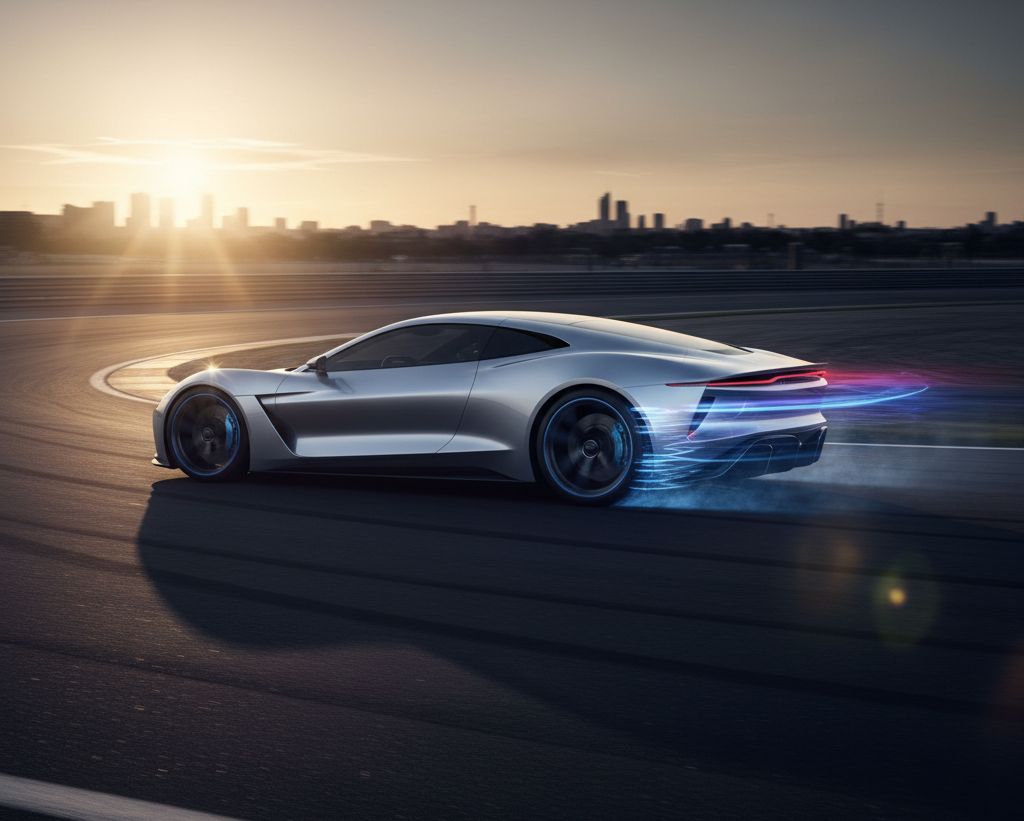
How the Fastest Electric Car Changes Perceptions
Traditionally, performance has been linked with roaring exhausts, high-octane fuel, and complex engine tuning. The rise of EVs challenges this definition.
- Silent Power: The absence of engine noise creates a new kind of performance experience. Drivers focus more on acceleration and handling rather than sound.
- Sustainable Speed: High performance is no longer synonymous with poor fuel economy. Electric cars deliver record-breaking speeds while producing zero tailpipe emissions.
- Accessibility: Models like the Tesla Model S Plaid prove that performance EVs can also serve as practical daily drivers.
The fastest electric car isn’t just about numbers; it’s about reshaping the very culture of automotive performance.
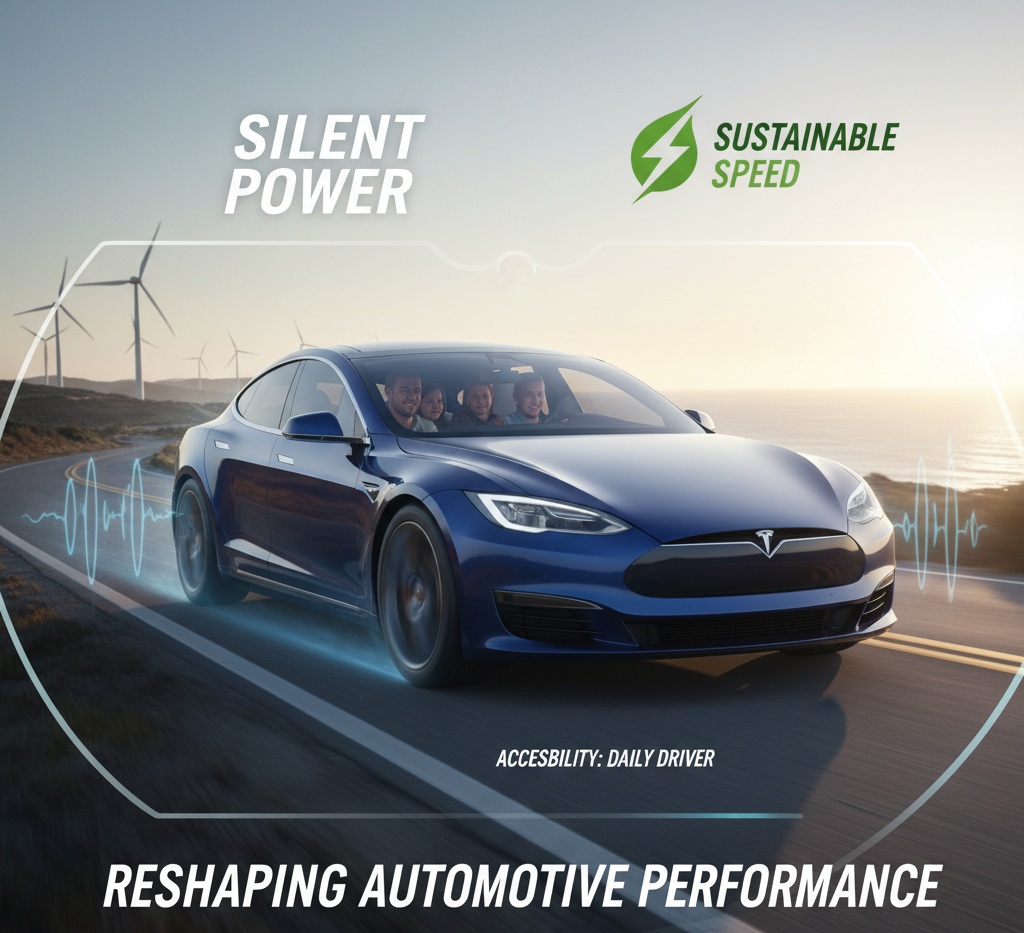
Electric Car Performance Beyond Speed
While acceleration and top speed get the most attention, EVs redefine performance in other ways too:
- Range and Efficiency
Newer EVs balance speed with long driving ranges, sometimes exceeding 400 miles on a single charge. - Charging Speed
High-performance EVs often support ultra-fast charging, allowing drivers to recover hundreds of miles of range in under 30 minutes. - Safety
Many electric cars feature advanced safety systems, from collision avoidance to autonomous driving features, that complement their performance capabilities. - Track Capabilities
EVs like the Porsche Taycan Turbo S and Audi RS e-tron GT are designed to excel on racetracks, proving that sustainable speed can coexist with high-level motorsport standards.
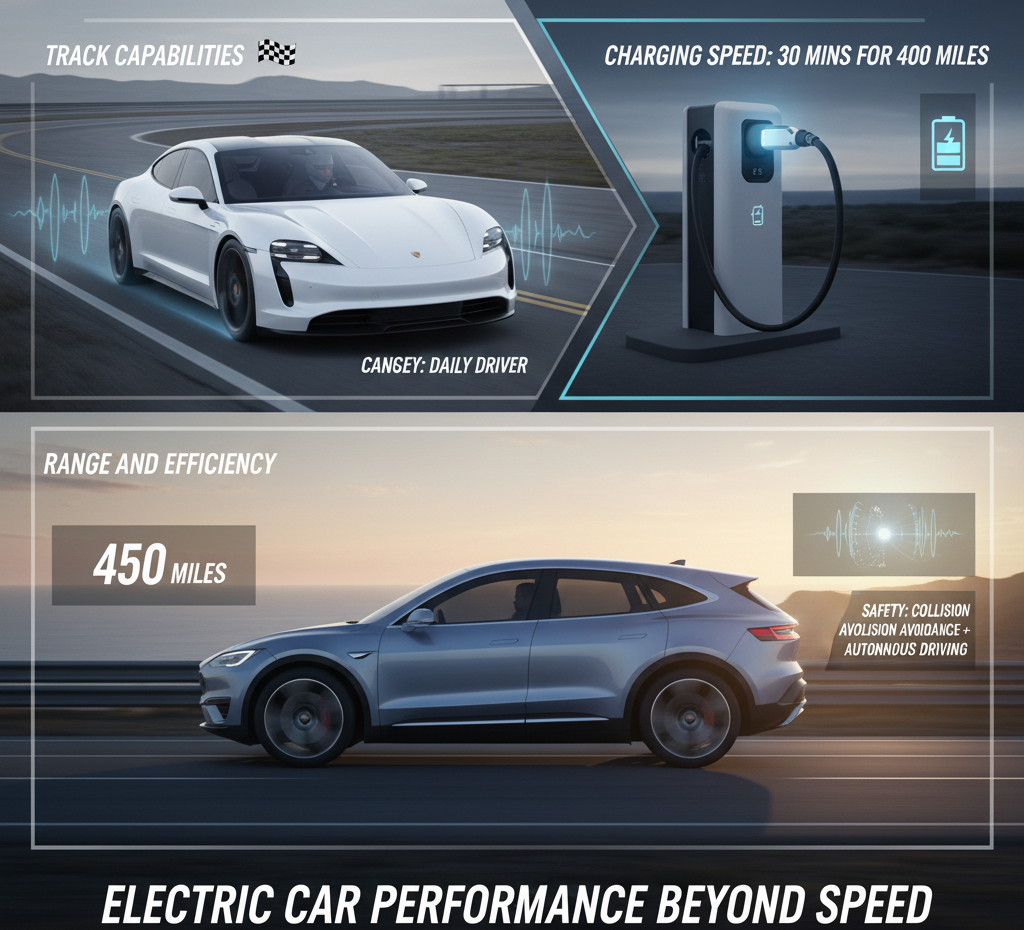
The Role of Innovation in Electric Car Performance
Innovation is at the heart of the fastest electric car movement. Automakers are investing heavily in:
- Solid-State Batteries: Expected to increase energy density, reduce weight, and extend range.
- Aerodynamics: Streamlined designs reduce drag while improving speed and efficiency.
- Regenerative Braking Systems: Capture energy during deceleration to recharge batteries, enhancing overall performance.
- Multi-Motor Systems: Using two, three, or even four motors to optimize power delivery and traction.
These advancements ensure that the performance edge of electric cars continues to grow year after year.
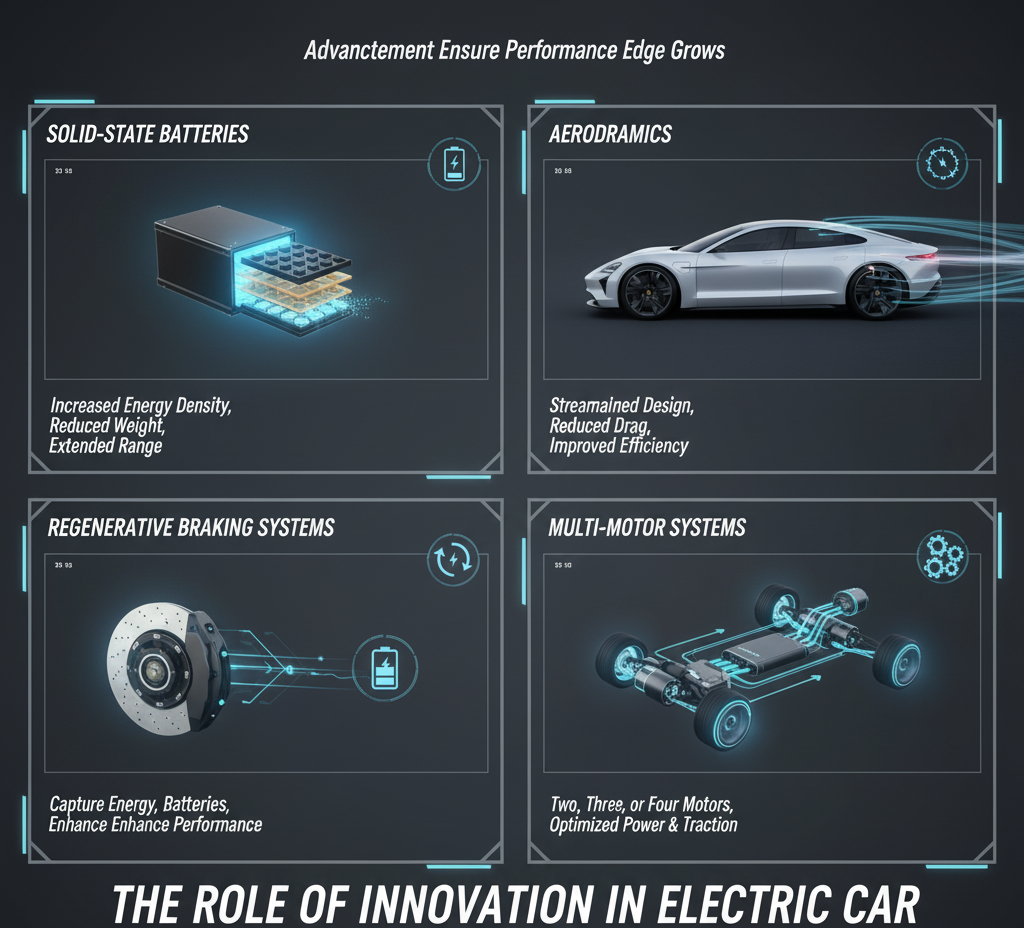
How Electric Cars Compete with Gas Supercars
The debate over EVs versus traditional gas-powered supercars is far from over. However, the fastest electric car models have already proven they can compete head-to-head with legendary gas vehicles.
- Acceleration: EVs usually win, with quicker 0–60 times.
- Top Speed: Some gas supercars still hold higher top speeds, but the gap is shrinking fast.
- Driving Experience: Gas cars offer sensory thrills (sound, vibration) that EVs replace with smooth, silent efficiency.
Ultimately, both types of vehicles have their appeal, but EVs are pushing performance into new territory.
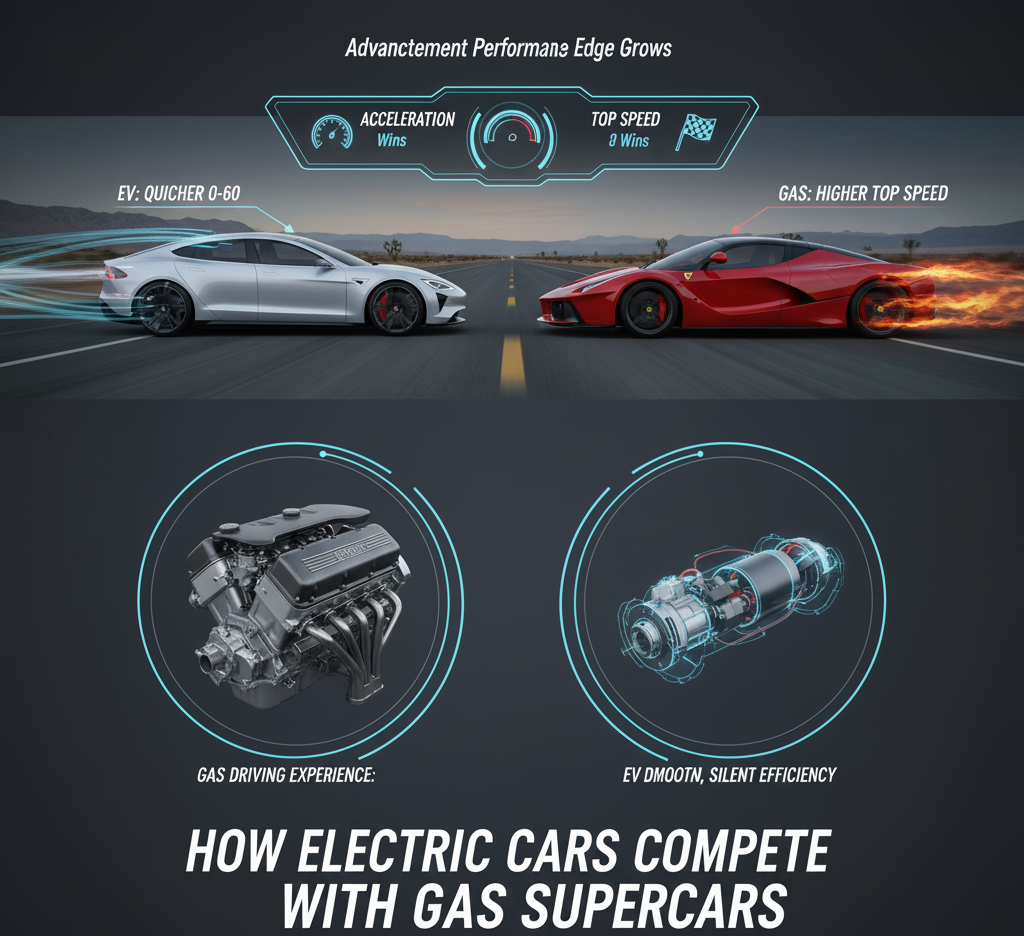
The Future of Electric Car Performance
Looking ahead, the future of EV performance promises even more breakthroughs:
- Faster Charging Infrastructure: Public charging networks will allow EVs to compete with gas cars in convenience.
- Affordable Performance EVs: More automakers will release high-performance EVs at lower prices, making them accessible to a wider audience.
- Electric Motorsport: Events like Formula E highlight the potential of EVs in racing, influencing consumer models.
- Sustainability Goals: Automakers aim to combine record-breaking speed with greener production processes.
By 2030, it’s likely that the fastest electric car will far outpace anything possible with traditional combustion engines.
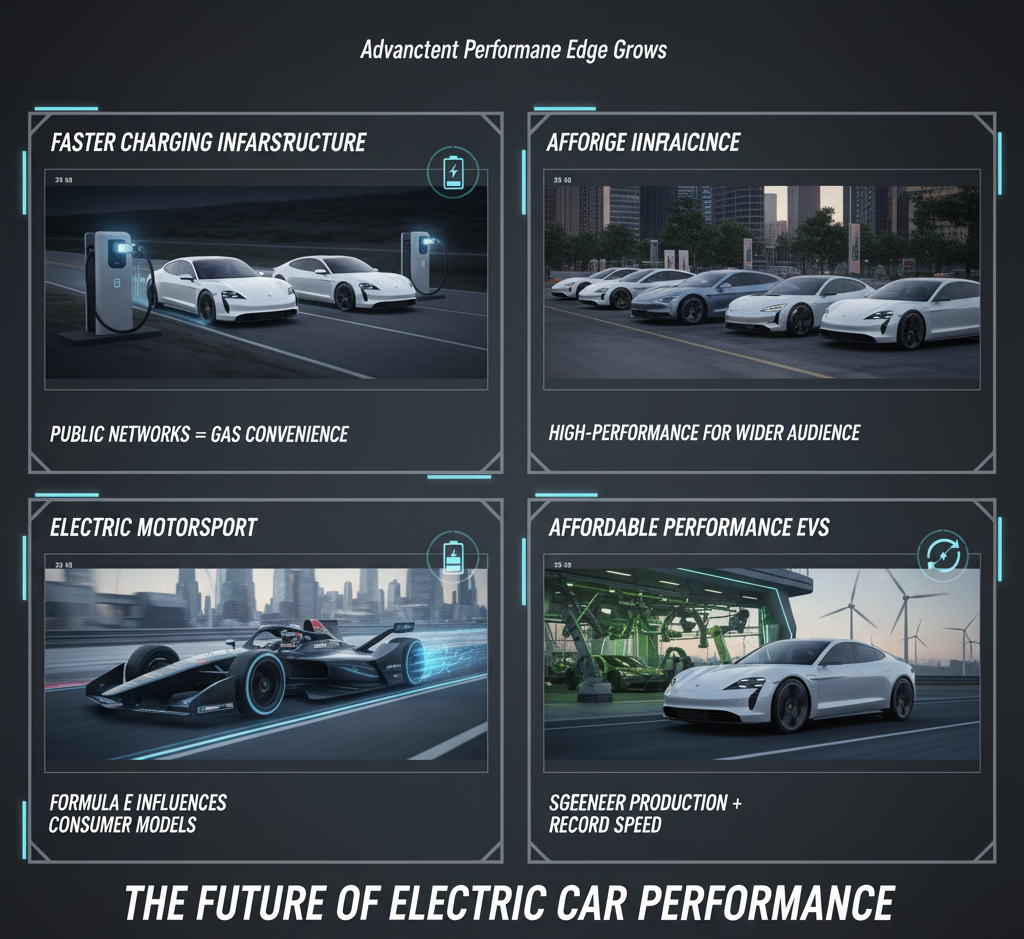
Key Takeaways
- The fastest electric car redefines performance through instant torque, advanced technology, and innovative design.
- EVs now rival — and often surpass — traditional supercars in acceleration and usability.
- The rise of the electric car proves that speed and sustainability can coexist.
- Future advancements in batteries, aerodynamics, and software will keep pushing EV performance to new heights.
Conclusion
The automotive world is changing rapidly, and the rise of the fastest electric car is one of the most exciting developments of this new era. Once viewed only as eco-friendly alternatives, electric car models are now breaking records and setting new standards for performance. At Nexgenwheels, we explore how these innovations are transforming the driving experience.
By combining speed, sustainability, and cutting-edge technology, these vehicles are redefining what it means to drive a high-performance car. The future belongs to electric mobility, and with every innovation, the line between practicality and performance grows thinner — a trend that Nexgenwheels continues to highlight for enthusiasts and everyday drivers alike.
“Additional insights on this topic are provided below.”
Top 8 Fastest Electric Cars in the World 2025


